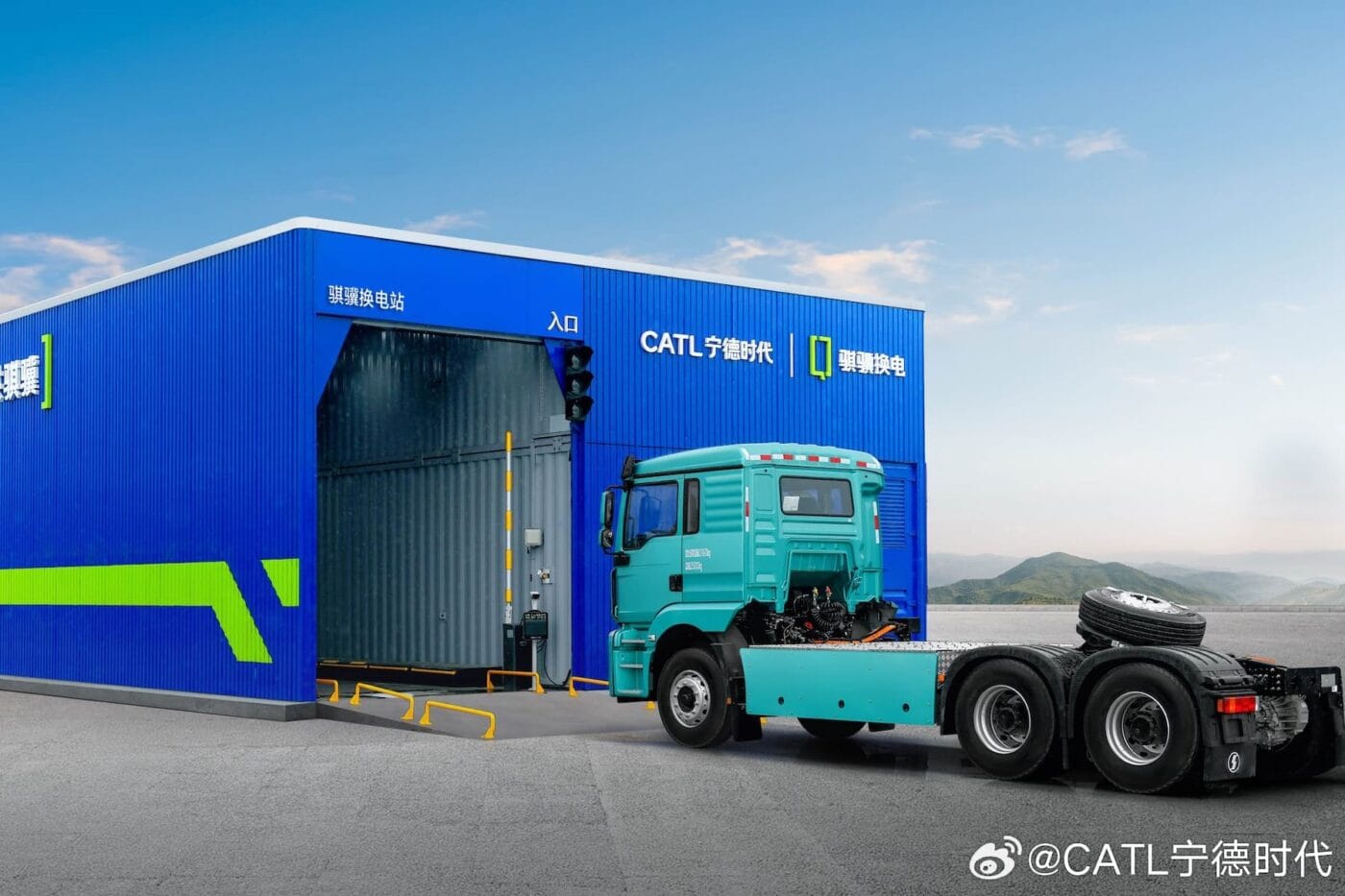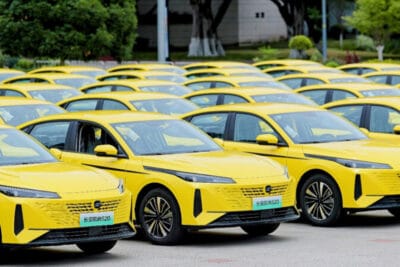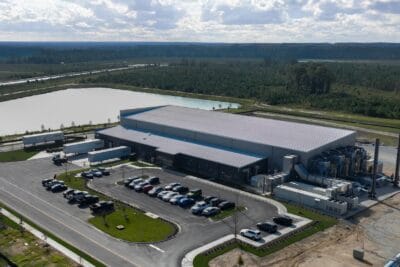CATL to open 300 battery exchange stations for electric trucks by the end of the year
CATL has been working on a battery swap system for some time, which became very concrete at the end of last year: CATL presented two standardised battery packs called 20# and 25# for cars and announced its intention to build 1,000 battery swap stations in China in 2025. Most recently, there were also rumours that CATL could take over Nio’s battery exchange stations.
CATL, which just raised 4.1 billion euros through an IPO on the Hong Kong stock exchange, now also has a battery swap system for electric trucks ready for the market. At an event in Datong in Shanxi Province in north-west China, the company presented the 75# standard battery exchange block for heavy commercial vehicles. According to CATL, it has the longest service life in the industry. It should be possible to select different numbers of battery packs, said Yang Jun, CEO of Qiji Energy, a unit of CATL.
Qiji Energy was founded in June 2023 with the mission of driving the introduction of battery swap technology in the heavy-duty truck segment. According to information at the time, the system was to work with 171 kWh battery packs based on LFP cells from CATL. There is currently no information on whether this has remained the case.
According to Yang, there are already more than 30 heavy-duty e-truck models from more than a dozen vehicle manufacturers in China that support the system. Qiji Energy’s standardised battery exchange stations are equipped with 24 battery packs. Specifically, CATL plans to set up the first 300 battery exchange stations for heavy trucks in China this year.
CATL assumes that by 2030, one third of the electricity demand of electric vehicles can be covered by battery swapping, charging at home and charging at public charging stations. CATL also expects a boom in electric vehicles for the truck sector: “In the next three years, the heavy truck industry will see explosive growth and is expected to achieve a 50 percent electrification rate because of the need for a zero-carbon transition and the need to reduce logistics costs,” said Robin Zeng, Chairman and CEO of CATL, at the event.
Compared to trucks with internal combustion engines, vehicles using Qiji Energy’s battery swap station can save 60,000 RMB (around 7,500 euros) per 100,000 kilometres of operation, CATL said.





0 Comments